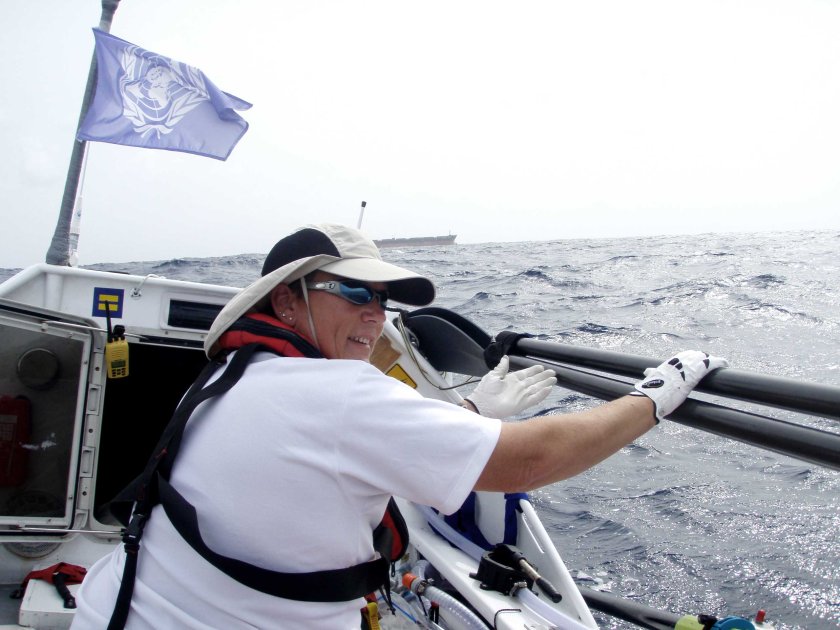
Angela Madsen, a former Marine and 54-year-old grandmother of five, is the first paraplegic woman to row across the Atlantic and Indian Oceans. She lives in Long Beach, California, and is the founder and director of the California Adaptive Rowing Program.
Sports are something I was always good at. I’m 6’1, which helped. When I was growing up in Ohio out in the country, I used to go and climb these big cliffs and pretend I was a mountain climber. My brothers would always recruit me to play on neighborhood sports teams—basketball, volleyball, football, tennis—and I was first pick for the team.
[time-brightcove not-tgx=”true”]

I enlisted in the Marines right out of high school. I was a police officer stationed at Marine Corps Air Station El Toro and on temporary duty assignment to travel and play center on the All-Marine women’s basketball team. During one game, somebody tripped me and someone else landed feet first on my lower back during a game. That ruptured two discs in my lumbar spine, ending my military career. A botched surgery paralyzed me from the waist down.
By the time I got out of the hospital, I had lost my job, my apartment, and my relationship—that person did not sign on to be with someone in a wheelchair. I was homeless, keeping what little personal things I had in a locker at Disneyland and sometimes sleeping on a bus bench. I would take my daughter’s little red wagon to collect cans and bottles to get money to buy food.
That’s when two veterans groups helped me turn my life around. Disabled American Veterans secured me temporary housing, and helped me get financially stable enough to buy the home I’m in now. And the Paralyzed Veterans of America sponsored my trip to the National Veterans Wheelchair Games in 1996, which reignited my passion for sports.
I started lifting weights and getting into fit physical condition and playing wheelchair basketball, which was fun. Then I learned how to row. I was a natural at it, so I started doing competitions. I actually met my wife, Debra Madsen, shortly before my first ocean row in 2006. Were it not for her, I may never have made it to the starting line.
I like rowing because I don’t do it in a wheelchair. I transfer into a boat, so I look like everyone else. Nobody even knows I’m different when they see me in a boat on the water.
Eventually, I started doing long-distance rows. My longest row took 67 days, and I just did one from Long Beach, California, to Oahu, Hawaii, that took 60 days. (My rowing partner and I listened to a lot of the Frozen soundtrack and half of the Fifty Shades of Grey audiobook to pass the time.)
Those rows are a lot like deployment. I’m away from my family for a long period of time, doing something that’s risky and dangerous and physically uncomfortable. I’ve been pelted with flying fish, and tossed around in the middle of a lightning storm. The boat never stops moving—it’s like living in the inside of a washing machine. At the end of the day, I’m living out the Marine Corps Core Values: honor, courage and commitment.
One day, I rowed inside the end of a rainbow, or maybe it was the beginning. Sadly, there wasn’t a pot of gold. But I remember thinking, “This is just cool.”
—as told to Olivia B. Waxman